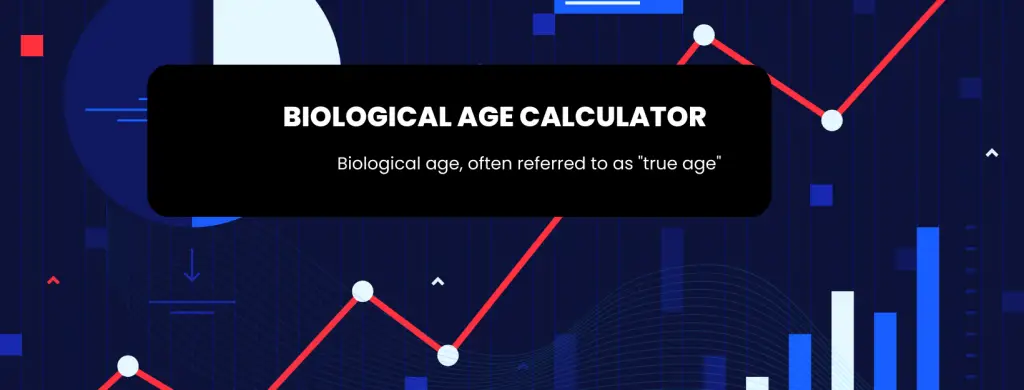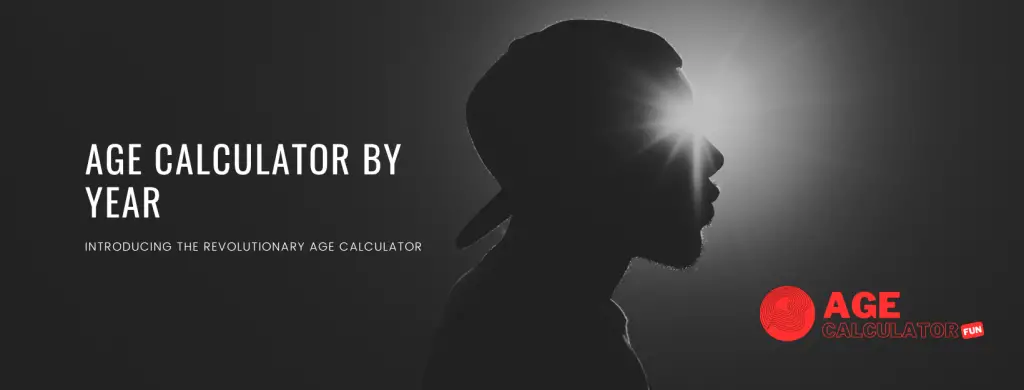Biological Age Calculator
As time goes by, many of us become curious about our age and how well we are aging. While our free biological age calculator is a simple number that increases with each passing year, our biological age is a more complex measurement that takes into account various health factors and lifestyle choices.
In this article, we will delve into the world of age calculators, exploring the significance of a free biological age calculator, how it differs from chronological age, and the role of various biomarkers in assessing our overall health and well-being.
Biological Age And Its Importance
Biological age, often referred to as “true age” or “health age,” is a measure of how well our body is functioning and how it compares to others of the same chronological age. Unlike chronological age, which simply counts the number of years we’ve lived, biological age considers factors such as genetics, lifestyle habits, and overall health.
A biological age calculator is a powerful tool that estimates this age based on various biomarkers and health-related data.
Understanding The Free Biological Age Calculator
A biological age calculator takes multiple factors into account to estimate how well or poorly we are aging. Some of the essential factors include cholesterol levels, blood sugar levels, heart rate, blood pressure, and lifestyle habits like diet, exercise, and stress management.
By analyzing these parameters, the calculator provides an approximate health age, which may be younger or older than our actual chronological age.
Biological age calculator online
An online biological age calculator is like a virtual time traveler for your body, peering into your genetic code and lifestyle choices to determine how quickly you’re aging on the inside. It’s a modern marvel, combining science and algorithms to reveal the true story of your health, helping you make informed decisions to defy the sands of time and live your best, most youthful life.
How to calculate your biological age
Calculating your biological age involves a holistic assessment of your lifestyle, genetics, and overall health. Factors such as regular exercise, a balanced diet, quality of sleep, stress management, and even social connections play a crucial role. You can also explore advanced methods like telomere length analysis or epigenetic testing to delve deeper into the intricacies of your biological age. Ultimately, embracing a healthy, mindful existence and making positive choices can be the key to slowing down the hands of your biological clock.
The Role Of Biomarkers In Assessing Biological Age
Biomarkers of aging are specific biological measurements that indicate how well our body is functioning compared to others in our age group. These biomarkers are essential in estimating biological age accurately.
For instance, a person with low cholesterol levels, a healthy heart rate, and good blood sugar control may have a biological age that is younger than their chronological age.
On the other hand, someone with high cholesterol levels, elevated blood sugar, and an unhealthy lifestyle may have a biological age that is older than their chronological age.
Real Age Calculator: Discovering Your True Health Age
One of the most popular biological age calculators is the real age calculator free. Developed by aging-research scientists, this tool provides valuable longevity information and estimates your approximate health age based on your responses to specific lifestyle questions.
By providing insights into your overall health and well-being, the real age calculator offers the motivation to adopt healthier habits and improve your quality of life.
Longevity Information And Estimated Life Expectancy
When we learn about our biological age through an age calculator, we gain valuable insights into our life expectancy. Longevity information provided by the calculator is a rough estimate of how long we can expect to live based on our current health and lifestyle habits.
It serves as a wake-up call for individuals to take charge of their well-being and make positive changes to enhance their longevity.
Preventing Age-Related Illnesses: The Link To Biological Age
Age-related illnesses, such as Alzheimer’s, cancer, and cardiovascular diseases, are a significant concern as we grow older.
By understanding our biological age and its impact on our overall health, we can take proactive steps to prevent or delay the onset of these conditions.
A lower biological age is often associated with a reduced risk of age-related illnesses, making it crucial to maintain a healthy lifestyle and stay informed about our health.
Healthy Habits For A Younger Biological Age
As Aristotle wisely said, “We are what we repeatedly do.” Establishing healthy habits can have a profound impact on our biological age and overall well-being. Here are some key lifestyle habits that can contribute to a younger biological age:
Quality Sleep: Aim for 7-9 hours of restful sleep each night to allow your body to repair and rejuvenate.
Stress Management: Practice mindfulness techniques, meditation, or yoga to reduce stress levels.
Laugh and Enjoy Life: Surround yourself with positive experiences and people that bring joy to your life.
Balanced Diet: Consume a diet rich in fruits, vegetables, and whole grains, while minimizing processed foods and saturated fats.
Regular Exercise: Engage in both cardiovascular exercises and strength training to keep your body strong and fit.
Maintain Healthy Relationships: Cultivate strong social connections with friends and family, as they contribute to overall happiness and well-being.
Limit Alcohol and Avoid Smoking: Excessive alcohol consumption and smoking can accelerate the aging process and harm your health.
Conclusion
Knowing your biological age through an age calculator empowers you to take control of your health and make positive lifestyle changes. By understanding the significance of biomarkers and the impact of various lifestyle habits, you can influence your biological age and potentially increase your longevity.
Embrace a healthier lifestyle, prioritize self-care, and consult with healthcare professionals for personalized advice.
Remember, it’s never too late to start making positive changes that can lead to a longer, healthier life.
Table of Contents
Toggle

